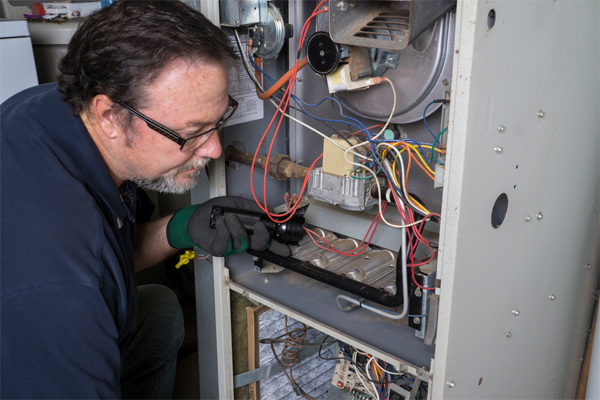
If you're considering a brand-new A/C system you may be questioning if central air conditioning conditioners or new ductless systems are better.
The response, obviously, will depend on your personal circumstance. But don't worry, we've noted the primary elements to consider below, and as soon as you have actually read them you must be able to figure it out quite quickly.
So What is a Ductless System Anyways?
In case you don't understand, a ductless or mini-split a/c system is a lot like a central air conditioning conditioner system. They both include two systems: a condenser that sits outside the home, and an evaporator/air handler that sits inside the house. Coolant passes in between the two units, carrying the heat from inside your home to the outside system where it is released.
With a central air conditioning system, however, the cool air is sent out through the air handler on your heating system into your ductwork, where it is brought into the rest of the house. A ductless system utilizes a slim cable television in between the condenser and a box on your wall, and no ductwork is involved and vents are not needed on the floor.
How to Decide: Central Air Conditioning Conditioners vs Ductless
Here are some of the concerns we ask our consumers to help them choose which type is the best match for their home and requirements.
1. Do You Have Existing Ductwork?
This is the main decision-maker for many people. If you have actually ductwork in your house already, it will be more economical to stick with a main system.
If you have no ductwork, it will cost much less to install a ductless system "from scratch". There will likewise be much less building and construction mess: all you require is a 3-inch hole in the wall to run the cable television through. Ductless systems are also fantastic for homes with new additions that aren't connected to the ductwork that goes through the remainder of the home.
2. Taking A Look At Central Air Conditioning Conditioners
When you're inside, a central Air Conditioner is undetectable. A ductless system, however, requires a vent in the ceiling or slim system on the wall. While the makers go to a lot of problem to make packages as stylish as possible, there is still something to see.
If you're extremely particular about your design, a main system may be a better choice for you.
3. How Huge Is Your Home?
Most ductless systems simply plain don't have sufficient power to cool a big house. If your house is bigger (2,500 square feet and up) opt for main. From 2,000-- 2,500 square feet, the greater power of a central air conditioning system will settle, and you'll most likely improve effectiveness out of a central air conditioning system.
If your home is 2,000 square feet or less, consider ductless.
4. Are You Sensitive to Noise?
As a general guideline, ductless systems are quieter.
If sound levels matter to you, be sure to http://query.nytimes.com/search/sitesearch/?action=click&contentCollection®ion=TopBar&WT.nav=searchWidget&module=SearchSubmit&pgtype=Homepage#/hvac ask your technician for the sound level (in decibels) for any systems you're considering. Some ductless systems are louder and some central systems are pretty quiet.
5. What is Your Cooling Budget plan?
A great ductless air conditioning system will start around a number of thousand dollars for a single indoor unit (set up), but can go higher if you need several indoor units or wish to buy the highest energy performance model offered. In general, central air systems are more expensive for similar designs, although some top of the line ductless systems will be more pricey than a low-efficiency main AC.
Unfortunately, we can't print precise prices right here because there's such a big variety it would be useless. Also, in some cases we have a special or rebate occurring that will minimize the price.
The good news is that we offer some outstanding funding alternatives, so you can get the system you need for about $40 per month (sometimes a lot less) no matter what you're getting.
6. How Essential is Energy Efficiency?
Now, this is a bit of a crammed question, due to the fact that with central air the quality of the ductwork and the setup task are a substantial part in assisting a central system reach its efficiency potential.
For example, if the ductwork wasn't created well (more weaves than required) or if it isn't sealed appropriately and air is leaking, the effectiveness of a central system drops. In terms of installation quality, the professional has to do things like ensuring the ideal level of refrigerant, a level surface area for the outside system, the system matches the air handler, and so on
. All that being stated, the best ductless systems have a higher possible energy performance (as much as 27 SEER) than the very best main systems (21 SEER).
7. Do You Required Specific Zoning Control?
If you have some locations of your home that get method hotter than others, or different family members who furnace service calgary like different temperatures, a zoning system is the response.
You can get zone control in both Central Air Conditioners or ductless, but it's less expensive with ductless. This is because to get zoning control with a central air conditioning system, you need upgraded ductwork with internal dampers.
8. Do You Required Supplemental Heating as Well?
Some ductless systems aren't simply an a/c, they are what's called a 'heat pump'. That suggests when it gets cold outside it can reverse direction and bring warm air in (as long furnace repair calgary as it doesn't drop below about -7 ° C).
This can be useful if you want to utilize your furnace less, as heatpump are incredibly efficient.
Concerns?
While this general guide must help get you began, it's constantly best to speak with a heating and cooling professional to make certain you're getting all the truths as they relate to your specific home.